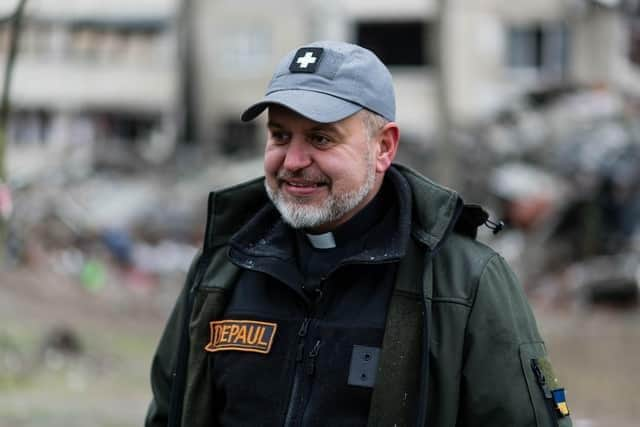Russia invasion of Ukraine: Two years into the Ukraine war, the psychological impact is beginning to bite
It is hard to believe it is two years today since the invasion of Ukraine.
Rumblings of increased tensions in the east of the country – where Russia had already moved into the Donbas and annexed Crimea eight years earlier – had been going on for weeks. Observers predicted a flare up along the eastern border, but no-one expected the “full scale invasion” that took place.
Advertisement
Hide AdAdvertisement
Hide AdEven after Russia’s initial attacks, many believed it would be a flash in the pan that might last just a few weeks. Gradually, the world realised that would not be the case.


Military experts and academics tell me they are not optimistic of an imminent resolution. Russian president Vladimir Putin is not the type to back down. Ukrainian leader Volodymyr Zelensky has stood firm on fighting against Russia until Kyiv has won back its territory. There is a stalemate and a waiting game.
Meanwhile, the impact of the protracted conflict is taking its toll in the civilian population, in many ways.
Father Vitaliy, a priest and aid worker, is head of charity Depaul Ukraine, which, before the war, helped homeless people in the eastern Ukrainian city of Kharkiv.
Now it has pivoted its services to add various forms of aid work, from rebuilding damaged homes and providing food to those in desperate need to creating a new specialist centre for children in the city of Bashtanka and offering mental health support services.
When I spoke to him a year ago, 12 months after the invasion began, he was still upbeat and positive, a larger-than-life character with a stoic outlook. When we spoke again earlier this week, I realised that while still stoic, he is clearly fatigued by the relentless work in front of him.
The number of homeless people in Kharkiv has risen, as more residential buildings are destroyed or damaged in the conflict.
Meanwhile, addiction levels are high among people sleeping rough, with 44 per cent reporting alcohol misuse needs and 11 per cent suffering problems of drug misuse.
Advertisement
Hide AdAdvertisement
Hide AdWorryingly, a quarter of clients accessing Depaul’s rough sleeping services are veterans of pre-2022 conflicts, such as the war in the Donbas. It is a figure that will undoubtedly rocket as more soldiers return from the front line to find their homes have been destroyed in Russian attacks.
Others will suffer mentally from the effects of war and will find themselves unable to return easily to civilian work.
Father Vitaliy says the need for psychiatric services in both the civilian and military population is huge – and calls on the world not to forget Ukraine.
"I think [previously], everybody was thinking it would be finished soon, but it is not,” he told me. He points to the situation in Gaza, which has knocked Ukraine off the front pages.
"I don’t believe it is less for these people who are suffering, but we need to update the information and bring attention back [to Ukraine],” he says. "People without support lose hope much more quickly.”
Comments
Want to join the conversation? Please or to comment on this article.
